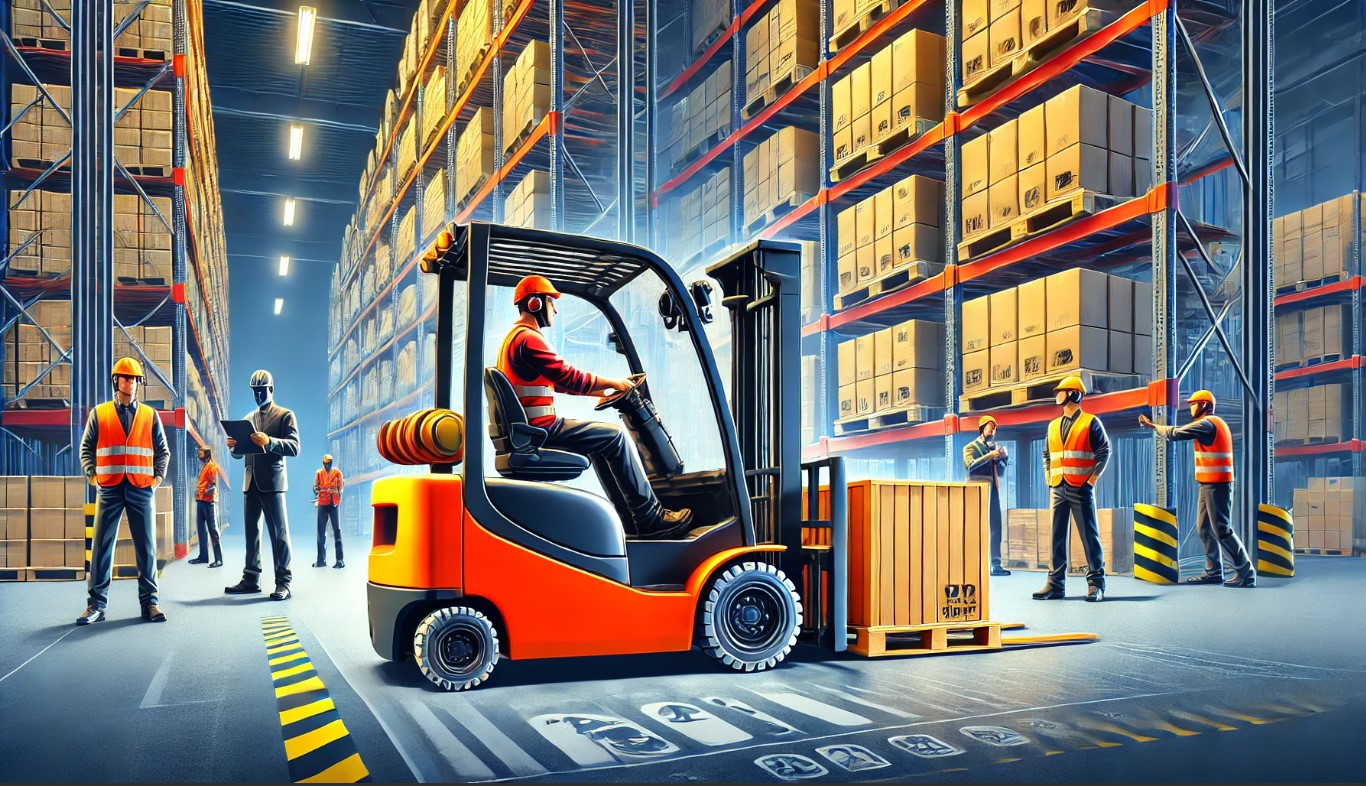Forklift operators play a crucial role in ensuring smooth operations in warehouses, construction sites, and various industrial workplaces. However, this role comes with significant responsibility—balancing safety with productivity. A well-trained forklift operator not only prevents accidents but also ensures the efficient handling of materials, saving time and resources.
At Get Drivers Ed, we understand the importance of equipping forklift operators with the right skills and knowledge. Our comprehensive training programs are designed to help operators enhance workplace safety while maximizing productivity.
1. The Importance of Safety in Forklift Operations
Forklifts are powerful machines, but their misuse can lead to serious accidents. Prioritizing safety is essential for protecting both workers and equipment.
Common Forklift Hazards:
Tip-Overs: Caused by uneven loads, sharp turns, or unstable surfaces.
Collisions: Often result from limited visibility or improper use.
Falling Loads: Poorly secured materials can shift and fall, posing risks to nearby workers.
Why Safety Matters:
Reduces workplace injuries and fatalities.
Minimizes downtime caused by accidents.
Protects equipment and materials from damage.
By enrolling in a forklift operator training course at Get Drivers Ed, you’ll learn strategies to prevent these hazards and create a safer work environment.
2. Enhancing Productivity Through Proper Forklift Training
While safety is paramount, productivity is equally important in ensuring workplace efficiency. Trained forklift operators are better equipped to handle tasks swiftly and accurately.
How Training Boosts Productivity:
Efficient Load Handling:
Proper training ensures operators can secure and transport materials quickly without compromising safety.
Reduced Equipment Downtime:
Skilled operators are less likely to misuse or damage forklifts, leading to fewer repairs.
Streamlined Operations:
Trained operators understand workplace layouts and workflows, reducing time wasted on unnecessary movements.
At Get Drivers Ed, our courses focus on both safety and efficiency, ensuring operators contribute to a well-oiled workplace.
3. Key Skills Every Forklift Operator Needs
To excel as a forklift operator, mastering certain skills is essential.
Technical Skills:
Equipment Inspection: Identify and address mechanical issues before they escalate.
Load Stability: Understand weight distribution and load capacity to prevent tip-overs.
Precise Maneuvering: Navigate tight spaces and complex layouts with ease.
Soft Skills:
Communication: Collaborate effectively with coworkers to ensure smooth operations.
Problem-Solving: React quickly to unexpected challenges, such as spills or equipment malfunctions.
Time Management: Prioritize tasks to meet deadlines without sacrificing safety.
At Get Drivers Ed, we emphasize these skills in our training programs, helping operators become valuable assets to their teams.
4. Creating a Safety-First Culture in the Workplace
A strong safety culture benefits everyone, from operators to management.
Steps to Foster Safety:
Provide Comprehensive Training:
Ensure all operators complete certified forklift training programs.
Regular Safety Audits:
Conduct inspections to identify and mitigate potential hazards.
Encourage Reporting:
Create an environment where employees feel comfortable reporting safety concerns.
Ongoing Education:
Offer refresher courses to keep skills sharp and updated with the latest safety standards.
By promoting a safety-first mindset, workplaces can reduce accidents and maintain high levels of productivity.
5. The Role of Technology in Forklift Operations
Modern advancements have transformed forklift operations, making them safer and more efficient.
Innovative Features in Modern Forklifts:
Backup Cameras and Sensors: Improve visibility and reduce collision risks.
Load Weight Indicators: Help operators avoid exceeding load capacities.
Automated Systems: Assist in precise load placement and navigation.
How Training Incorporates Technology:
At Get Drivers Ed, we incorporate these advancements into our training programs, ensuring operators are well-versed in using modern equipment.
6. The Long-Term Benefits of Forklift Operator Training
Investing in forklift training yields benefits that extend beyond immediate safety and productivity improvements.
Advantages Include:
Career Advancement: Certified operators are more likely to secure promotions and higher-paying roles.
Enhanced Reputation: Workplaces with trained operators are seen as reliable and professional.
Cost Savings: Reduced accident rates lead to lower insurance premiums and fewer equipment repairs.
By choosing Get Drivers Ed for your training needs, you’re not just improving your skills—you’re setting yourself up for long-term success.
Conclusion: Elevate Safety and Productivity with Get Drivers Ed
Operating a forklift requires more than just basic knowledge—it demands a commitment to safety, efficiency, and continuous improvement. From preventing accidents to enhancing workplace productivity, proper training is the cornerstone of success.
At Get Drivers Ed, we offer forklift operator training programs designed to empower operators with the skills they need to excel. Our courses combine expert instruction, hands-on practice, and modern technology to prepare you for the challenges of today’s workplaces.


